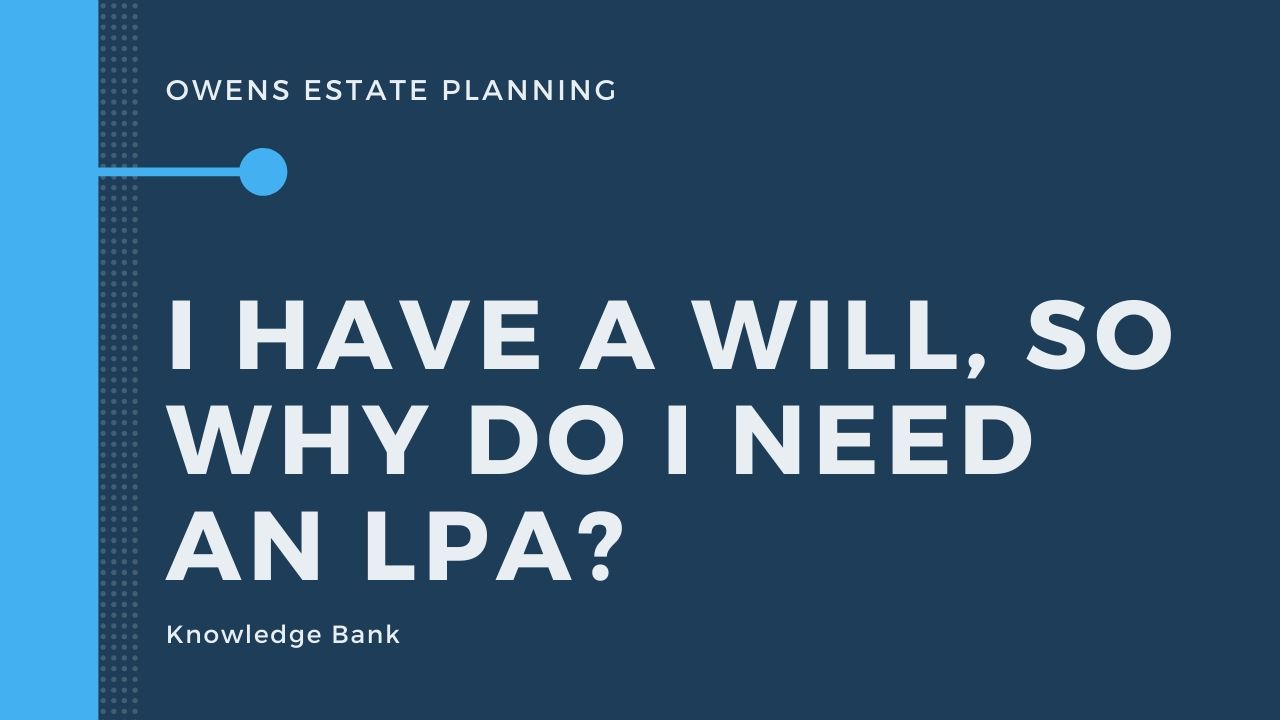I have a Will, so why do I need an LPA?
"Why do I need a Lasting Power of Attorney? I've already got a Will in place".
This is a very common question that I get asked by clients. Naturally you assume if you have a Will in place, surely nothing else needs to be done?
Well, the best way I've found to explain this is that Wills and Lasting Power of Attorney are two completely separate documents covering two completely separate elements of your life. When you pass away, your Will empowers your Executors to administer your estate including handing out inheritance to your beneficiaries, paying any relevant taxes etc. But how can your Will help you if something happens to you but you're still alive, for instance; you've had an accident, you've got Alzheimer's or Dementia, or any other situation where you can't do an activity? Remember, your Will can only kick-in after you've passed away, so in the above situation your Executors are powerless.
This is where Lasting Powers of Attorney come in really handy. Lasting Powers of Attorney are documents that you can set up to give power to people that you trust whilst you are still alive. If you then lose capacity, or you're struggling with an activity, they can step in using the document as proof that they have authority to act for you. This allows them to speak to the banks, sell a property on your behalf, or sort out any other job, big or small. It could even involve making decisions about medical treatments and things like that.
Essentially, your Will is only used after you've passed away, but the Lasting Power of Attorney is the only legal document thing that can be used to cover your affairs whilst you're still alive. When you pass away, your Lasting Power of Attorney ends and the powers in your Will kick in.


